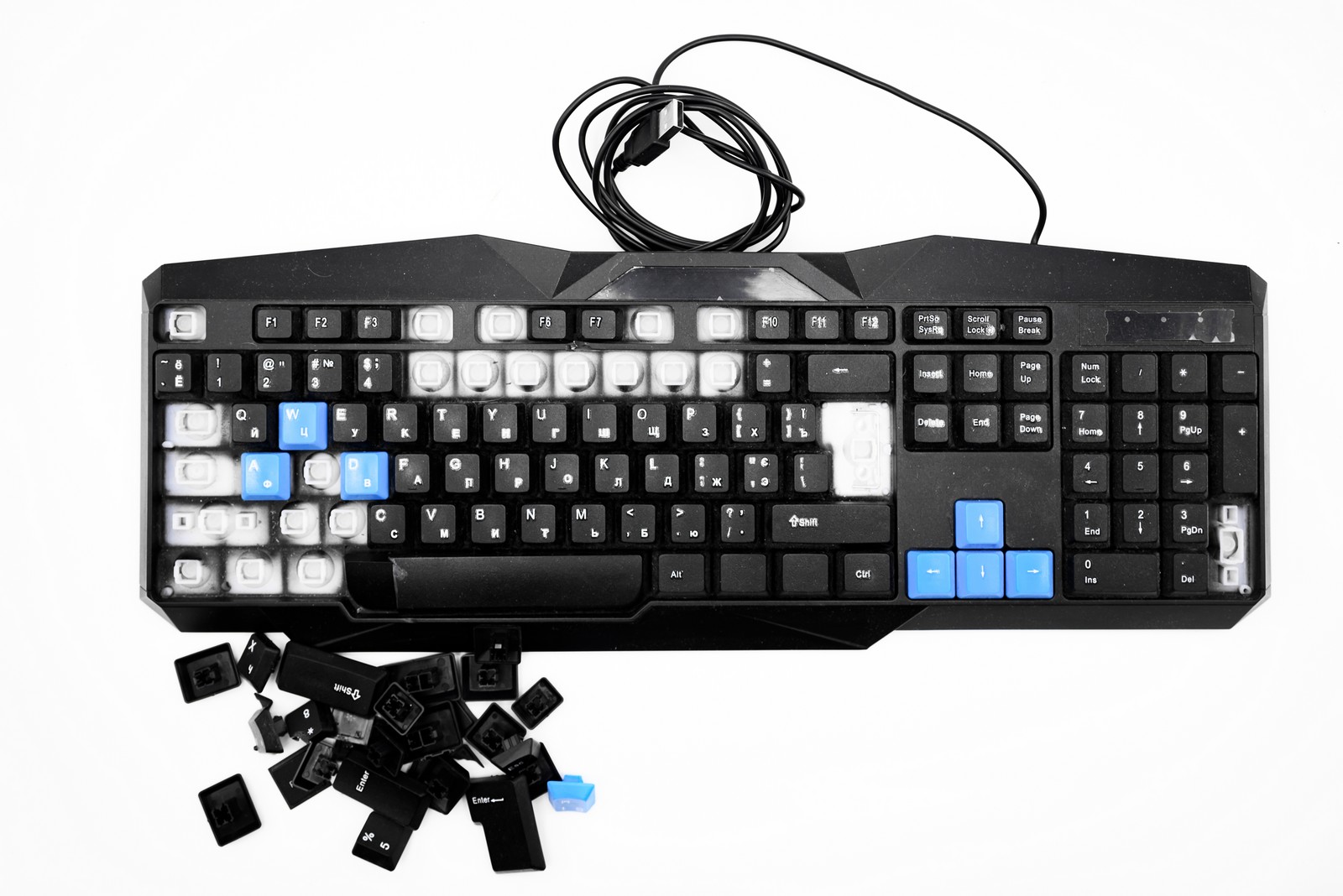Membrane Keyboard

Quick Navigation:
- Membrane Keyboard Definition
- Membrane Keyboard Explained Easy
- Membrane Keyboard Origin
- Membrane Keyboard Etymology
- Membrane Keyboard Usage Trends
- Membrane Keyboard Usage
- Membrane Keyboard Examples in Context
- Membrane Keyboard FAQ
- Membrane Keyboard Related Words
Membrane Keyboard Definition
A membrane keyboard is a type of keyboard that operates by using a thin, flexible membrane layer beneath its keys. When a key is pressed, the membrane makes contact with a conductive circuit, registering the keypress. Unlike mechanical keyboards, membrane keyboards lack individual switches for each key, resulting in quieter operation and a more compact design. They are commonly used in consumer electronics due to their cost-effectiveness, lightweight construction, and resistance to spills and dust.
Membrane Keyboard Explained Easy
Imagine a keyboard that works like a touchscreen. Instead of individual moving parts, there's a soft layer underneath the keys. When you press down, the layer touches a circuit that tells the computer which key you hit. It's like pushing a button on a TV remote—smooth and quiet!
Membrane Keyboard Origin
Membrane keyboards gained popularity in the 1980s with the rise of personal computers. Their affordability and compact design made them ideal for consumer electronics and office environments, gradually replacing traditional typewriter-like keyboards.
Membrane Keyboard Etymology
The term "membrane keyboard" comes from the word "membrane," referring to the flexible, thin layer that registers key presses.
Membrane Keyboard Usage Trends
Membrane keyboards are widely used in offices, households, and portable electronics. Over the past decade, their popularity has remained stable due to affordability and availability, despite the increasing interest in mechanical keyboards among gamers and enthusiasts.
Membrane Keyboard Usage
- Formal/Technical Tagging:
- Input Devices
- Electronics
- Keyboards - Typical Collocations:
- "membrane keyboard design"
- "affordable membrane keyboard"
- "quiet typing with membrane keyboards"
Membrane Keyboard Examples in Context
- Many laptops utilize membrane keyboards to save space and weight.
- Affordable membrane keyboards are ideal for budget-conscious users.
- Some video game consoles feature membrane-based controllers for cost efficiency.
Membrane Keyboard FAQ
- What is a membrane keyboard?
A keyboard that uses a thin, flexible membrane layer to register key presses. - Are membrane keyboards good for gaming?
They are cost-effective but may lack the tactile feedback preferred by gamers. - Why are membrane keyboards quieter than mechanical ones?
They lack individual switches, reducing noise during key presses. - Do membrane keyboards last long?
They typically have a shorter lifespan compared to mechanical keyboards. - Can membrane keyboards handle spills?
Yes, their design often includes spill-resistant features. - Are membrane keyboards ergonomic?
Some models include ergonomic designs, but it varies by brand. - What devices use membrane keyboards?
Laptops, office keyboards, calculators, and some remote controls. - Are membrane keyboards cheaper?
Yes, they are more affordable than mechanical keyboards. - How do membrane keyboards work?
By pressing a key, the membrane connects with a circuit to send a signal. - Can you replace keys on a membrane keyboard?
Keycaps can sometimes be replaced, but repairs are harder compared to mechanical keyboards.
Membrane Keyboard Related Words
- Categories/Topics:
- Electronics
- Input Devices
- Consumer Technology
Did you know?
The earliest membrane keyboards were introduced in the 1980s to make personal computers more affordable and portable. Today, they remain a popular choice for devices where quiet operation and low cost are priorities, such as ATMs and cash registers.
PicDictionary.com is an online dictionary in pictures. If you have questions or suggestions, please reach out to us on WhatsApp or Twitter.Authors | Arjun Vishnu | @ArjunAndVishnu

I am Vishnu. I like AI, Linux, Single Board Computers, and Cloud Computing. I create the web & video content, and I also write for popular websites.
My younger brother, Arjun handles image & video editing. Together, we run a YouTube Channel that's focused on reviewing gadgets and explaining technology.



Comments powered by CComment